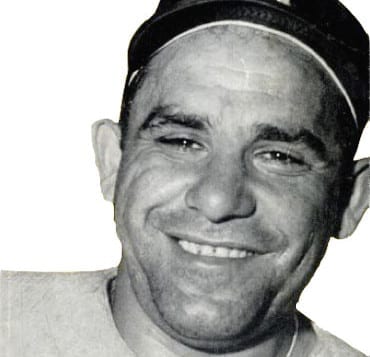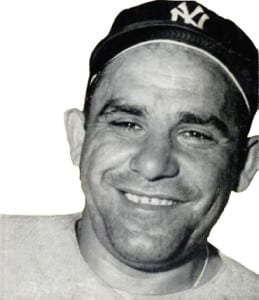iSad about iPad
A residence on Woodbury Road in Cold Spring Harbor reported that an unknown person entered a locked vehicle and stole an iPad from the car on Sept. 30 at 9 a.m.
Drug bust
A 30-year-old man from East Northport was arrested after police said he had pills on him with no prescription and marijuana on Sept. 30. He was arrested on Curtis Path in East Northport at 4 p.m. and charged with seventh degree criminal possession of a controlled substance and unlawful possession of marijuana.
Time to get a new watch
A resident of Eatons Neck Road in Eatons Neck said an unknown person stole a watch from inside his or her vehicle at 7:30 a.m. on Sept. 29.
Cuffed for a controlled substance
On Sept. 30 a 45-year-old man from East Northport was arrested for having heroin in his possession, according to police. He was arrested at 11:35 a.m. near Larkfield Road and Clay Pitts Road and charged with seventh degree criminal possession of a controlled substance.
Trying to rock out
A resident of Grover Lane in East Northport said someone threw a rock at a windowpane at the front of their house at 8:35 a.m. on Oct .4
Off the chain
Police said a 31-year-old woman from Huntington Station grabbed a chain off another woman’s neck on Broadway in Huntington Station at 3:45 a.m. on Oct. 4. She was charged with fourth degree grand larceny.
Finders keepers
Someone said they lost their wallet at Walt Whitman Road in Huntington on Oct. 1, and between 1 and 5 p.m. someone used their credit card inside their wallet to buy items at numerous stores in the mall.
A pair of thieves
Two 27-year-old women from Hollis were arrested in Huntington Station on Oct. 3 after police said they stole a sweater, scarf, pants, four belts and two pairs of sunglasses from Lord & Taylor on Walt Whitman Road at 1:55 p.m. They were both charged with petit larceny.
High tide at the beach
On Sept. 30 a 22-year-old man from Huntington Station was arrested in Huntington after police said he had marijuana on him. He was arrested at Gold Star Beach Park on Browns Road at 7:25 p.m. and charged with unlawful possession of marijuana.
Crack is whack
A 26-year-old female from Huntington Station was arrested after police said she had crack cocaine in her possession. She was arrested on Railroad Street and Mckay Road in Huntington Station at 1:50 p.m. on Oct. 3 and charged with seventh degree criminal possession of a controlled substance.
Car meets brick column
A woman was driving a 2014 Chevrolet Cruze on Oct. 1 at 1:48 a.m. on Jericho Turnpike near Terry Road in Smithtown when her vehicle left the roadway, struck a brick light column in front of St. Patrick’s Roman Catholic Church on East Main Street, overturned and hit a tree. The victim was transported to Stony Brook University Hospital with serious injuries.
Cold crime
An unknown person stole a jacket and bottled water from a Target on Henry Street in Commack on Oct. 1 at 11:40 a.m.
Day drunk
A 33-year-old man from Coram was arrested on Oct. 3 after police said he was driving drunk. At 12:07 p.m. he was driving on Main Street and Elliot Place in Smithtown in a 2007 Nissan Murano when he was involved in a car crash. According to police, he then fled the scene and refused to show his license when arrested. He was charged with a DWI, first degree leaving the accident and failure to show license.
Someone’s gotta loose
Someone parked their 2002 Honda Accord on Locust Street in Nesconset and then said an unknown person broke into the car and stole the owner’s wallet, lottery ticket and credit card between 5 p.m. on Sept. 30 and 7:30 a.m. on Oct. 1.
Stop in the name of the law
On Oct. 1 a 61-year-old woman from Kings Park was arrested and charged with driving while intoxicated. Police said she was driving a gray Toyota in an erratic manner on Edgewood Road and Nissequogue River Road in Smithtown at 9:28 p.m. She was accelerating, slowing and stopping for no apparent reason before police pulled her over.
Tire trouble
At Key Food on Indian Head Road in Kings Park, someone damaged four tires of a 2003 Chevrolet Astro at 11:20 p.m. on Oct. 2.
Sit ‘n’ Bit
At Sit ‘n’ Sip Inn on 296 Maple Ave. in Smithtown on Sept. 30, a 25-year-old woman from Smithtown was arrested after police said she bit a man on his forehead and left arm at 5:40 p.m. The man needed medical treatment, and she was charged with assault with intent to cause physical injury.
Climbing in your windows
A resident of Washington Avenue in St. James reported that someone entered their home through a garage window on Oct. 2 between 6 p.m. and 8:30 p.m. and stole assorted jewelry.
Armed robbery
At a 7-Eleven on Jericho Turnpike in Commack on Oct. 2 at 12:40 a.m. an unknown person entered and displayed a handgun. They then demanded cash and fled the store.
Targeted for theft
Two females entered a Target on Veterans Memorial Highway in Commack on Oct. 1 at 8:45 p.m. and stole assorted clothing.
On the Pathmark to jail
On Oct. 4, police arrested a 37-year-old woman from East Setauket for petit larceny at the Pathmark on Nesconset Highway in Port Jefferson Station, after she allegedly stole beauty and cooking supplies.
Gunnin’ for goods
Police arrested four people between the ages of 17 and 21 for armed robbery on Oct. 1, shortly after they approached an unidentified man on Dewey Street in Port Jefferson Station, pulled out a gun and stole cash and marijuana from the victim. Police didn’t specify which of the suspects was holding a weapon but said they were arrested on Olympia Street, the next block over.
Getting comfy
A 32-year-old woman from Mount Sinai was arrested on Oct. 1 for petit larceny after she allegedly stole a comforter set from the Kohl’s on Nesconset Highway in East Setauket 10 days earlier.
A sleepy surprise
Shortly after midnight on Oct. 4, police arrested a 34-year-old man from Centereach for criminal trespassing on Mark Tree Road in Centereach. Police said the man entered someone’s home and slept in a bedroom, but the man didn’t break into the home, and it was unclear if the man knew the homeowner.
Third time was not the charm
Police arrested a 40-year-old man from Miller Place on Oct. 3 for operating a vehicle with a suspended license. Police said the man was driving a 1999 Toyota when he was pulled over on Miller Place Road. The man’s license had been suspended three times in the past.
A 49-year-old man from Centereach was arrested on Oct. 4 for operating a vehicle with a suspended license. Police said the man was driving a 2015 Ford Fiesta down Holiday Park Drive in Centereach around 2:18 a.m. and was pulled over and arrested at the scene shortly afterward. They said the man had his license suspended three times in the past.
Wrecked windows
Police said a 17-year-old man from Syosset was arrested for criminal mischief on Oct. 3. According to police, the man smashed the back window of a 2002 Nissan Silvia on Ruland Road and of a 2012 Honda Civic on Mallard Avenue, both on Aug. 10 in Selden. Police arrested the man at the 6th Precinct.
Shore thing
Between Oct. 1 at 10 p.m. and Oct. 2 at 1 p.m., an unidentified person stole credit cards and identification from a 2011 Toyota. Police said the car was parked on Shore Road in Mount Sinai.
Police said an unidentified person stole house keys and an insurance card from a 2002 Cadillac between Oct. 1 at 5 p.m. and Oct. 2 at 2 p.m. The car was unlocked and was parked in a driveway on Shore Road in Mount Sinai.
A sweet steal
Someone broke into the back entrance of Sweet and Savory on Main Street in Port Jefferson on Oct. 3, stealing money from the cash register.
Mailbox madness
An unidentified person smashed a mailbox on Westchester Drive in Sound Beach.
On Oct. 3 around 10:37 p.m., police said someone struck a mailbox on Patricia Lane in South Setauket with a metal rod.
Suits him
On the afternoon of Oct. 4, two unidentified people got into a verbal dispute. Police said one of the individuals entered the residence of the other and stole assorted men’s clothing. Police were unsure when the dispute occurred in relation to the theft.
Rosy robber
On Rosewood Road in Rocky Point, an unknown person stole a purse containing a woman’s license and checks from a car on Oct. 1.
Rock on Branch
A woman reported that an unidentified person threw a rock at her garage door and damaged it on Oct. 4 on Branch Lane in East Setauket.
Out of step
Police said an unknown person entered the backyard of a residence on Tudor Road in Centereach on Oct. 2, stole a 10-foot fiberglass step ladder and fled.
Tailgates and tools
Police said a 2011 Dodge Ram was parked in a driveway on Hawkins Road in Selden on Oct. 1 when someone stole the tailgate from the truck, as well as a drill, a separate drill set and a table saw from the bed of the truck.
Theater theft
Between Oct. 1 at 9:15 p.m. and midnight on Oct. 2, someone shattered the front driver’s side window of a 2013 GMC Denali while it was parked in the Loews Theater lot in Stony Brook. The unidentified person stole a camera, cash and assorted Michael Kors merchandise from the car.














































